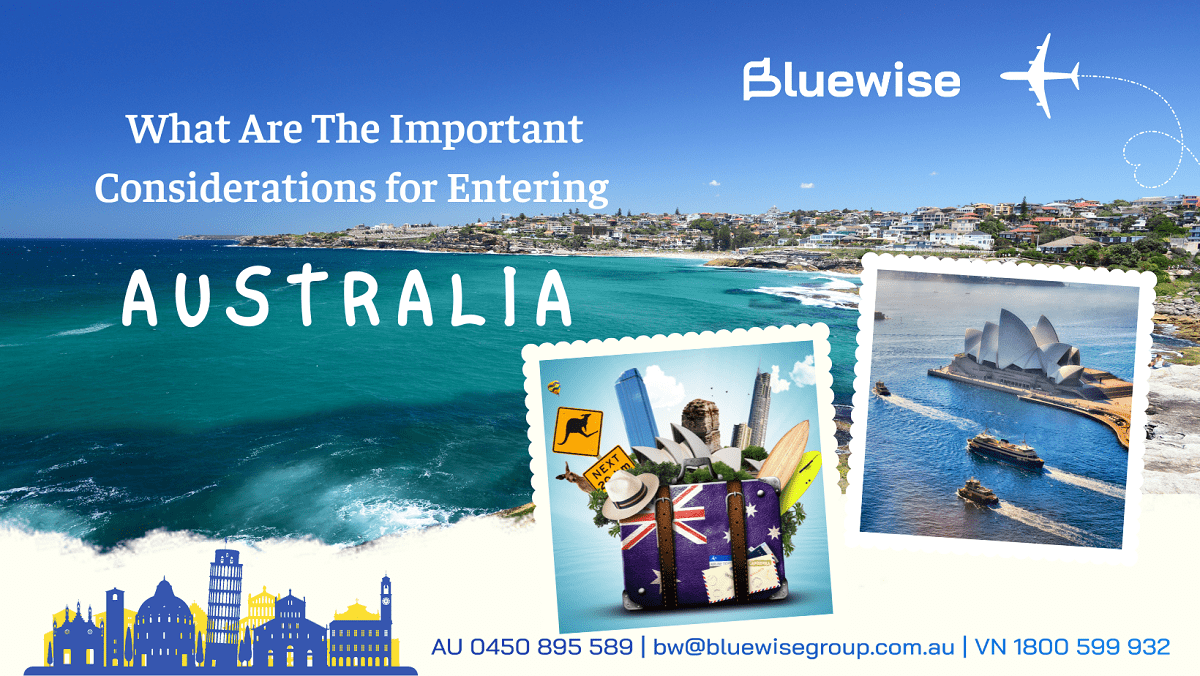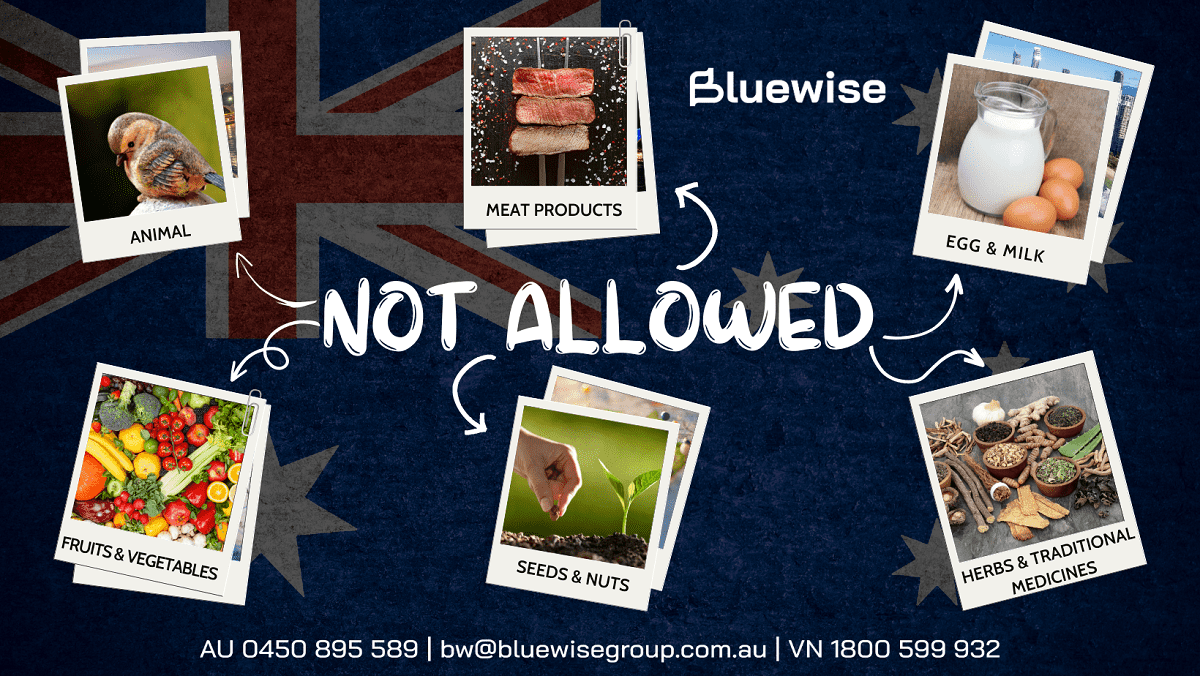The latest entry conditions to Australia

Currently, Australia accepts all types of entry visas, including tourist visas. Therefore, to enter Australia, travelers need to have a valid visa.
Passengers with a valid visa and who have received the full dosage of a COVID-19 vaccine will be allowed to enter Australia without needing to apply for a travel exemption.
Passengers who have not received the full dosage of a COVID-19 vaccine will still need to apply for a travel exemption to enter Australia.
According to the entry requirements for Australia, passengers who have not received the full dosage of a COVID-19 vaccine and are not exempt from vaccination due to health reasons will not be allowed to enter South Australia or Northern Territory.
Requirements for testing and vaccination before entering Australia
According to the latest entry requirements for Australia, passengers must complete the Digital Passenger Declaration (DPD) on the website or app 07 days before entering Australia.
Use the QR code to complete the DPD form on IOS, Android platforms, or the website.
To declare the DPD, passengers must provide sufficient information, including flight number, valid passport, travel history within 14 days prior to the flight, destination in Australia, quarantine plan (if required), certification of COVID-19 vaccination or a medical exemption certificate.
Children under 16 years old can have their parents or guardians complete the DPD form on their behalf. Children 16 years and older are required to complete the DPD on their own.
Regulations for arriving passengers to Australia
Regarding quarantine exemption for passengers arriving in Melbourne (Victoria state):
- • In addition to the implemented conditions, passengers need to register for an “International passenger arrival permit”. Registration is mandatory for passengers to enter Melbourne and be exempted from quarantine.
- This regulation applies specifically to the state of Victoria, which has the Melbourne international airport, and does not apply to other states, including New South Wales, which has the Sydney international airport.
Regarding vaccination regulations, which apply specifically to the Sinopharm BBIBP-CorV vaccine:
- For passengers who have received 2 doses of the Sinopharm BBIBP-CorV vaccine: Only those between the ages of 18 and 60 are considered to have received a full vaccine dose.
- If passengers are outside of this age range, they will be considered as not meeting the vaccination requirements of the Australian authorities and will be subject to mandatory quarantine upon arrival in Sydney/Melbourne and counted towards the entry quota.
- Foreign arrivals who have been fully vaccinated and wish to enter Australia must provide proof of having received a COVID-19 vaccine that meets the requirements of Australia’s Therapeutic Goods Administration (TGA). All TGA-approved vaccine doses must be administered at least 7 days prior to entry into Australia. Individuals who have received a mixed vaccine series will be considered fully vaccinated as long as all of the vaccines in the series have been approved or recognized by the TGA.
- • Currently, Australia recognizes the following TGA-approved vaccines: AstraZeneca Vaxzevria and Covishield, Pfizer/Biontech Comirnaty, Moderna Spikevax, Moderna Takeda, Sinovac Coronavac, Bharat Biotech Covaxin, Janssen-Cilag COVID Vaccine, Sinopharm BBIBP-CorV (for ages 18-60), and Gamale Research Sputnik V.
Electronic declaration upon arrival in Australia – DPD
Currently, foreign arrivals to Australia are required to complete the Digital Passenger Declaration (DPD) instead of the Australia Travel Declaration. The DPD can be completed on a mobile device or computer.
When filling out the DPD, you will be required to:
- Provide your contact details and a contact phone number in Australia
- Declare honestly your vaccination status
- Declare your travel history in the past 14 days
- Agree to comply with quarantine regulations and undergo rapid testing and PCR testing as required by the state you are arriving in, and accept penalties for non-compliance
- The Digital Passenger Declaration (DPD) will record essential information about foreign passengers, including their identity, what they will bring to Australia, their address in Australia, visa status, and vaccination status within 72 hours prior to boarding. Passengers can complete the DPD on their mobile device or computer.
- The DPD may also include visa, import license, personal identification, registration license, and other documents.
Items not allowed to be brought when entering Australia

Animal Products:
All mammalian animals, birds, bird nests, eggs, fish, reptiles, amphibians, crustaceans, insects, and their products except for cooked products or products that have been processed to make them shelf-stable.
Meat Products:
- All fresh, dried, and frozen meats and meat products from all animal species
- Packaged and vacuum-sealed meats, including noodle soups containing meat
- Dried beef, pork, and jerky not commercially packaged
- Mooncakes containing meat filling (including pork or other meats)
- Sausages
- Animal feed, including raw or canned pet food
Eggs and egg products, milk and dairy products Including:
- Fresh or dried eggs, including powdered eggs
- Products containing eggs, such as mooncakes
- Milk-derived products, both fresh and dried
- Products containing milk ingredients, such as coffee
- Powdered milk
In the case of traveling with a small child, infant formula is permitted.
Fruits and Vegetables:
In the list of things not to bring when entering Australia, the goods that you can be negligent are fruits and vegetables. Including:
- Fresh frozen vegetables and fruits.
- Common fruits such as oranges, lemons, grapefruits, durians, jackfruits, mangos, mangosteens, melons, rambutans, and limes.
- Banana leaves.
- Banana fritters.
Seeds and Nuts:
- Seeds for sprouting.
- Flower bulbs
- Packaged seeds without commercial value.
- Jewelry seeds.
- Bird feed.
- Pine cones, cereal grains, popped popcorn.
- Raw beans, including peanuts, hazelnuts.
Herbs and Traditional Medicines:
You should be cautious about bringing certain types of herbs or traditional medicines, as they are prohibited when entering Australia. The following list includes:
- Rooted herbal medicines that are soil-free.
- Plants and plant material.
- Raw tobacco.
- Medicine made from or containing material from an animal such as antlers, velvet, or bile.
- Products made from or containing animal feet, bird nests, or frog meat/fat.
- Medicinal herbs from or containing herbal ingredients including black brown mushrooms and tree bark.
- Bee pollen and bee products.
Contact Info:
- Bluewise Group | Bluewise Business Advisory | Bluewise Migration Advisory
- Head Office: Liberty Plaza – Level 1, 28/256 Chapel Rd Bankstown NSW
- HCM Branch: 339/10A Le Van Sy, Ward 13, District 3, Ho Chi Minh City
- Hotline: AU 0450 895 589 – VN 1800 599 932
- Email: bw@bluewisegroup.com.au
